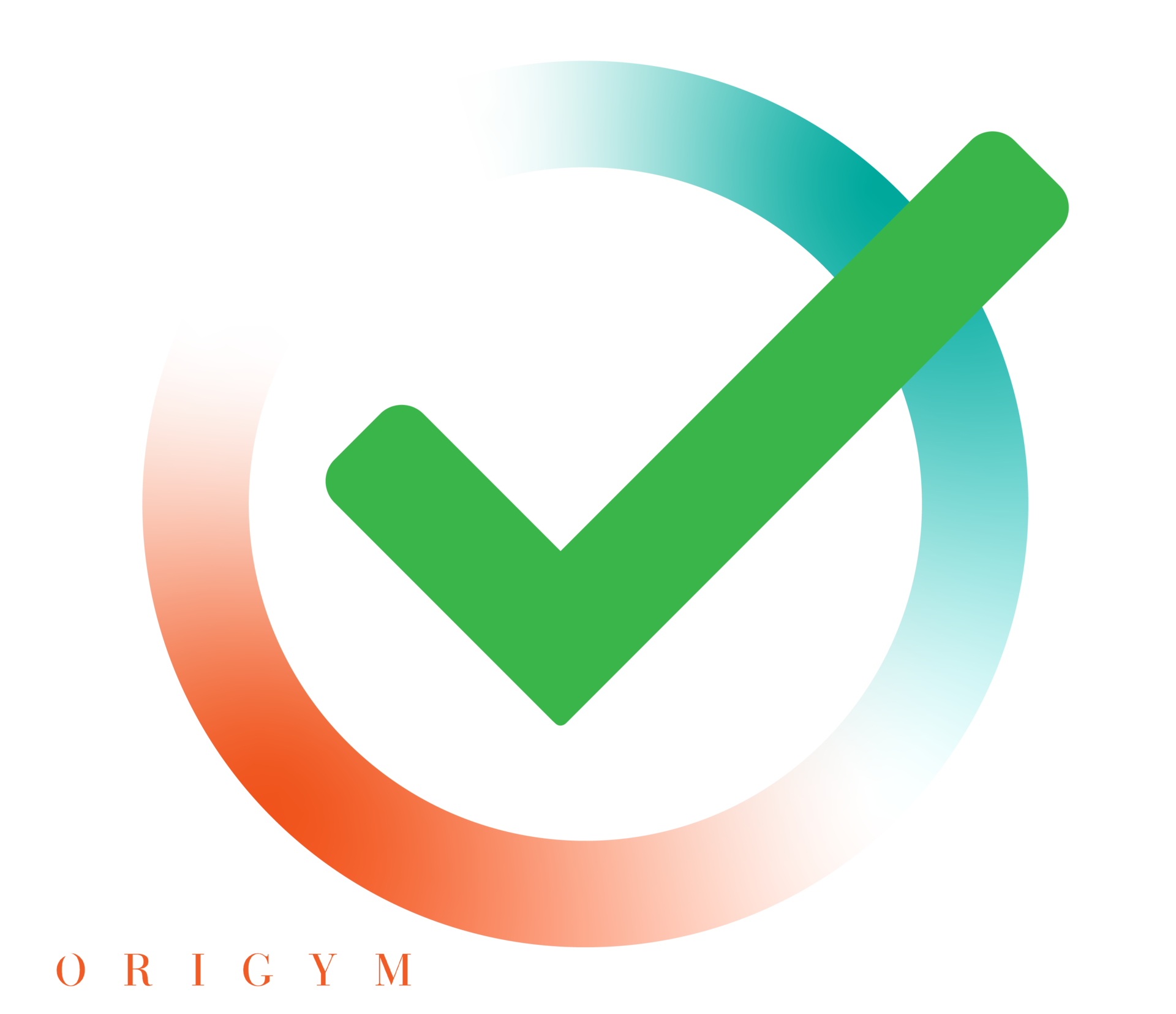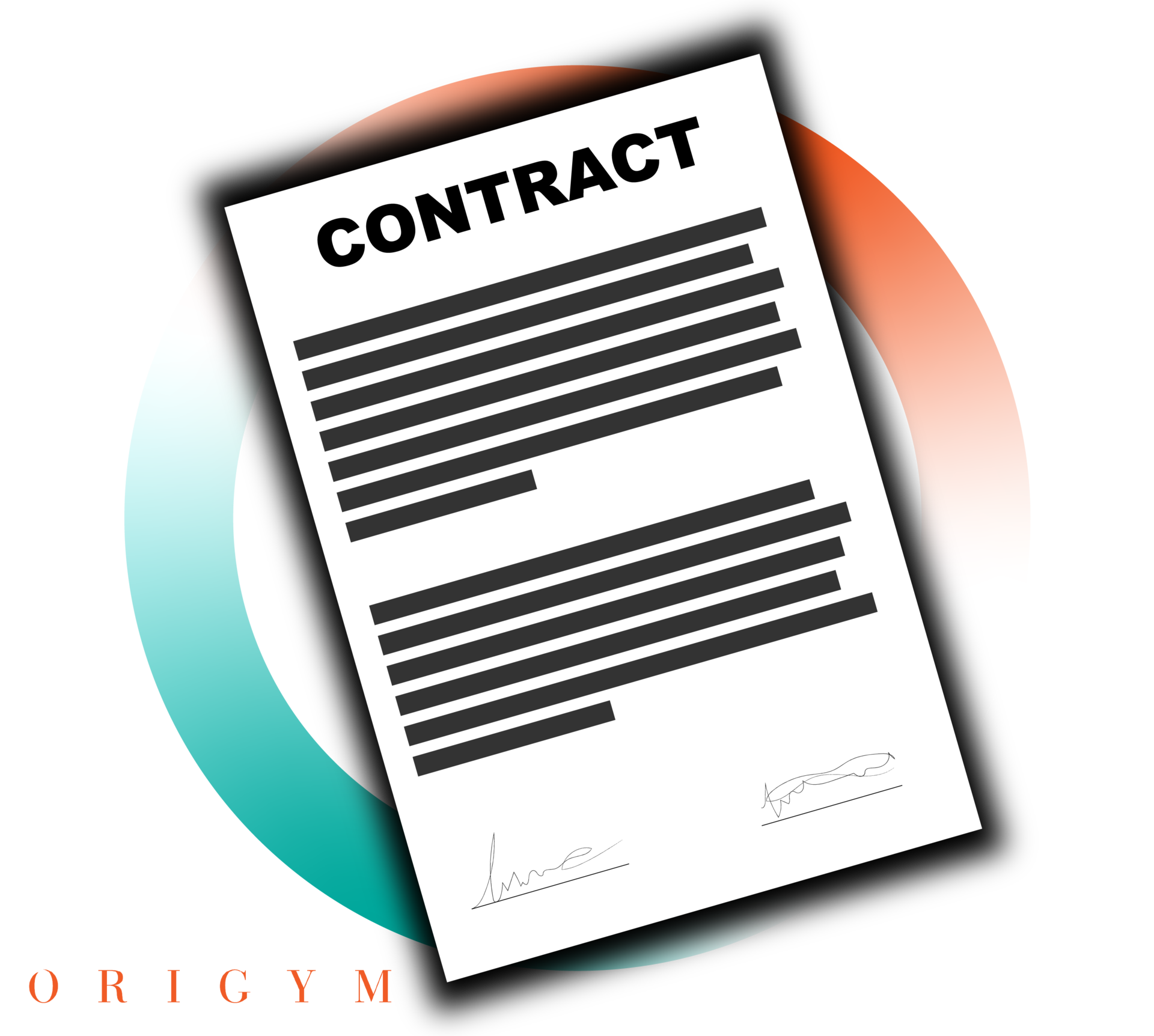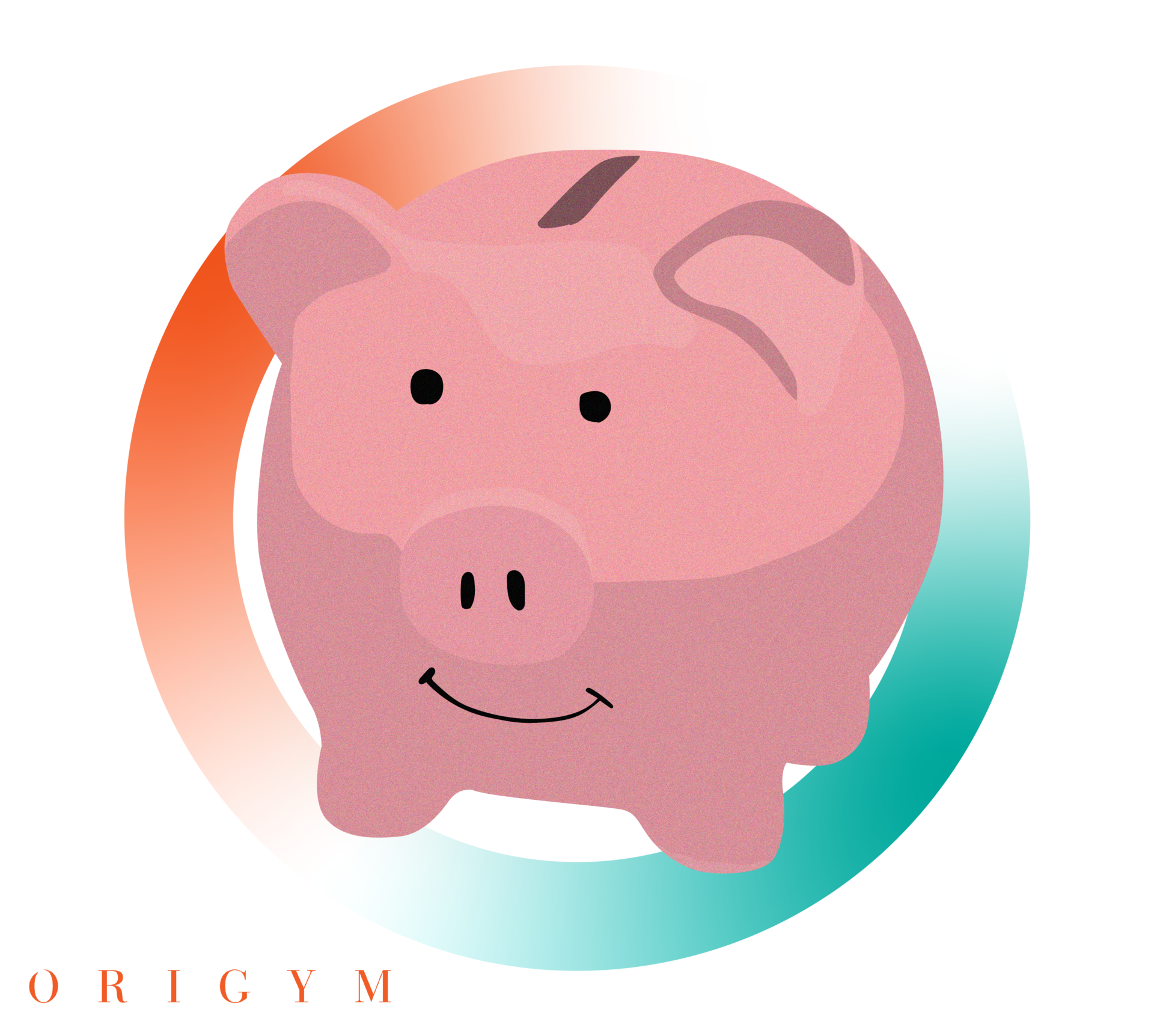Personal Trainer: Sole Trader or Limited Company?
As a personal trainer, you have the choice of registering as a sole trader or as a limited company.
Regardless of whether you’re newly qualified or you have a couple of years of industry experience behind you, the opportunity to take control of your career and set up your own business is yours to take.
But, which option is best?
Check out our comparison below and then keep reading to learn how to register your PT business.
In the fitness industry, you'll want to make your business unique and the best way to do this is with our Sports Nutrition Course.
Enquire to find out how you can improve your service and download our course prospectus to see what we have to offer.
EXPERT ADVICE ON BOOSTING YOUR PT INCOME
12 Ways You Can Boost Your PT Income!
Personal Trainer: Sole Trader or Limited Company?

The majority of people who start their own business in this industry register as a self employed personal trainer - but this isn't the only option out there.
Even if you want to set up a business completely on your own, you can still register as a limited company.
Choosing the right business structure to register your PT business is a big deal so obviously, you want to get it right. This is a really important decision so the best thing to do is weigh up the pros and cons of each.
Fortunately for you, we’ve got that comparison covered.
Don’t worry if you’re not sure about which option is best, below we’ve explained the pros and cons of registering as a limited company vs sole trader so that you can work out which is best for your business.
Personal Trainer Business Registration: Sole Trader
As we mentioned above, most people who are just starting out with their own business will register as self-employed. This is the same as becoming a sole trader.
If you’re wondering ‘what exactly is a sole trader?’, a sole trader is essentially a self-employed person who owns their own business, so you might find that we use the terms ‘sole trader’ and ‘self-employed’ interchangeably.
One thing to know is you can register as a sole trader even if you have employees or plan to hire people in the near future. Being a sole trader does not mean you have to work alone, it means you are the sole owner of the business.
The number one reason that a personal trainer would choose to become a sole trader is that it is much easier to register as a sole trader than it is a limited company (at least that’s what most people think).
However, when it comes to registering your business there’s a lot more to think about than how hard it is to register.
We’ll explain how to register soon, but for now, let's focus on the benefits of registering as a sole trader.
The Pros Of Being A Sole Trader

Considering that becoming a sole trader is the most common business structure in the UK, it’s clear that there are plenty of benefits associated with this business structure.
So, here they are!
Be Your Own Boss
Seeing as you’re searching for answers to whether a personal trainer should register as a sole trader or a limited company, you’ve probably thought a lot about the benefits of being your own boss.

This benefit isn’t exclusive to being a self-employed personal trainer, as you’ll still be your own boss if you form a limited company.
However, as a sole trader you’ll have total ownership over your business and full control over any plans concerning future plans and the direction of the business.
This could be the case if you started a limited company, but within that structure it’s likely you’ll have shareholders who will also have a say in how the business is run.
Develop Advanced Sports Nutrition Expertise
Free & Easy To Set Up
As we touched on briefly above, probably the biggest benefit of registering as a sole trader is that it’s both free and easy to get set up and register your business for tax purposes.
We’ll explain the full process of how to register as a sole trader later, but for the sake of this comparison, all you need to know is that it’s really straightforward.
You can even get set-up online, and you won’t have to pay any costs whereas you would be required to pay a fee to Companies House if you were to form a limited company.
Minimal Bookkeeping

Another reason that a lot of people steer more towards registering as a sole trader is that it’s a lot easier when it comes to bookkeeping and managing your accounts.
You will have to submit a self assessment Tax Return to HMRC every year, but as long as you keep on top of your accounts then this won’t be difficult.
As a self-employed individual, you work out your profits by deducting any business expenses from your income.
Your bookkeeping can be as simple as lists of your income and your expenses. However, this needs to be supported by documentary evidence of sales and purchase invoices.
Although your bookkeeping is still fairly simple, it is still highly recommended that you hire an accountant when it comes to submitting your tax return to HMRC.
This will cost you around £300, but the role of all accountants is to organise your finances and save you money, you’ll find that they save you much more than they cost.
Tax Allowances For Business Expenses
If you register as a sole trader, you’ll also have the benefit of being able to claim for PT business expenses.
These expenses will be tax deductible, so you can subtract these costs from your total profit, meaning you won’t have to pay tax for them.
However, you can only claim expenses that are incurred ‘wholly and exclusively’ for business purposes.

That means that for any assets that you use for personal and business use, like your mobile phone, you can only claim for the expenses that were incurred for business purposes.
For example, if you use the same phone for personal reasons and for business, you cannot then claim the whole cost of your phone bill.
But, you can claim for say 25% of your phone bill if you use your phone for business purposes 25% of the time.
When it comes to filing your tax return, you’ll find that you save a lot of money on tax by including these ‘little’ expenses as part of your business outgoings. It’s best to get an accountant to go through these expenses and file for your tax return above.
As we said above, this will cost you a small fee initially but the amount that your accountant saves you in tax will be much more than that.
You Keep All of The Profits

When you make money as a personal trainer, you keep whatever profits your business makes after tax.
Because you won’t have any shareholders or investors if you’re self-employed, you’ll be able to retain all of the profits from the business for yourself, without having to share them out.
Privacy
As a sole trader, your accounts and other details about your company will be private.
Whereas a limited company has to register with Companies House, meaning their Annual Return and Accounts are available on public records, this isn’t the case for sole traders.
This is a benefit as details of your business, shareholders, or directors will not be available to the public, and more importantly, your competitors.
Expand The PT Services You Offer Today! Help your PT service stand out from the crowd with our Level 4 Sports Nutrition qualification!
Easy to Change Structure
Finally, another benefit of registering as a sole trader is that it’s really easy to change the structure of your business should you want to further along the line.
There’s no doubt that you’ll consider registering your PT business as a limited company after reading the benefits of doing so a little further on, but it might not be right for your business right now.
This is especially true if you’re just getting started and you haven't got a good client base as of yet, or if you want to start off with a part-time business so that you can still have a salaried role for some income security.
However, as your business grows and your profits increase, being self-employed might no longer be the best option.
Fortunately, changing your business structure from a sole trader to a limited company isn't a complicated process. If you decide that being a sole trader isn’t right for your business anymore, you can always form a limited company.
The Cons of Being A Sole Trader

Unfortunately it isn’t all good news, there are a couple of cons to think about before you go ahead and register as a self employed personal trainer.
Debts and Liability
One thing to really consider before you set up as a sole trader is liability.
If you register as a sole trader then there is no legal separation between you as the business owner and your business itself.
This means that when you register as a sole trader, there is no legal distinction between your personal money and your business' money, and so you (as the sole trader) are personally liable for all of the debts and liabilities of the business.
This liability is unlimited, which means that there is a higher personal risk involved because your personal finances could be affected.
For example, if your business has any unpaid debts, then because you are personally responsible for repaying that debt it could come out of your personal finances or assets (e.g. your house or your car).
Paying Income Tax
Another downside of registering as a sole trader is that this business structure is not as tax efficient as a limited company.
As a sole trader, your entire taxable income will be liable for Income Tax and National Insurance.

You will have a personal allowance of £12,500 just as you would if you were paid a salary by an employer.
After that, you pay basic rate tax of 20% for any income up to £50,000, and a higher rate of 40% tax on any income between £50,001 and £150,000. Any income over £150,000 is taxed at an additional rate of 50%.
Once your income really starts to increase, or if your business already has a sizable income, you’ll probably find that you pay a lot more tax as a sole trader than you would if you registered as a limited company.
Note: These figures are correct for the tax year 2019/20, but they might change at the start of the new tax year (6th April 2020).
If you’re reading this after the new tax year, then have a quick check for updated tax rates.
National Insurance Payments
In addition to Income Tax, self-employed people (or sole traders) also have to make National Insurance contributions.
If you choose to register as a sole trader, there are two kinds of National Insurance contributions that could apply. Those are Class 2 and Class 4.
If the profits from your business are greater than £6,365 for the year, then you will need to pay Class 2 National Insurance which will cost you £3.00 a week.
If your profits exceed £8,632 a year, then you will also pay Class 4 National Insurance.

You’ll pay this at a rate of 9% on all profits between and £8,632 and £50,000, and then 2% on profits that exceed that £50,000 yearly threshold.
Remember that your profits are defined by your total yearly income with any business expenses deducted, not a salary that you choose to pay yourself out of the business profits.
Again, these figures often change at the start of a new tax year so it’s best to refer to the UK Government website to be sure of the thresholds.
After reading this article, you should also give these ones a read too!
You’ll Be Perceived As A Smaller and Less Established Business
Outside of having to pay more for tax and national insurance, another con of being a sole trader is that there might be a perception that your business is smaller or less established if you aren’t set up as a limited company.

This in itself comes with a couple of disadvantages.
Generally speaking, being a sole trader rather than a company could make your services less attractive to clients or potential investors.
Seeing as we’re talking about personal trainer business registration, this isn't really something to worry about because it’s unlikely that your PT clients will care about your business structure.
However, if you want to expand or start a bigger business, for example if you’re thinking of opening your own PT studio, then being a sole trader might hold you back a little.
Personal Training Business Registration: Limited Company
You might be pretty set on the idea of registering your personal trainer business as a sole trader, but don’t make any decisions just yet.
It’s worth knowing about the pros and cons of registering as a limited company so check them out below.
Pros Of A Limited Company
Debts and Liability

Registering as a private limited company means that your business is its own legal entity and your personal liability is limited - yes, that is why it’s called a limited company.
Whereas a sole trader would be personally liable for all of their business debts and liabilities, that isn't the case if you register your PT business as a limited company.
In this case, your role would be the business director. As the director of the business, you are still responsible for all legal and financial decisions, but your personal finances are completely separate from that of the business.
This is a huge benefit of this business structure because it eliminates the risks associated with working as a sole trader.
That’s because your personal assets and finances are protected by the law, leaving only your investment at risk if your business does fail.
If your business falls into a lot of debt, you could choose to use your personal assets to pay off the debt, but legally you wouldn’t need to.
Tax Benefits
Another key advantage of registering as a limited company is that this is a lot more tax-efficient than being a sole trader.
If you register as a limited company, then you will pay corporation tax as opposed to income tax.
Corporation tax is currently (tax year 2019/20) at a rate of 19% on all profits between £0 and £300,000, and according to the UK Government that rate might even reduce to 17% in April 2020.
This is a pretty significant difference to the rate you would pay as a sole trader, especially if you earn over £50,001 and have to pay the higher rate of 40%.

Limited companies also save on National Insurance Contributions. As the director of a limited company, you need to pay National Insurance on salaries but not on dividends.
So as the director of a limited company, you can choose to take a small salary that comes just below the primary threshold for National Insurance (£719 a month) and then draw most of your income in the form of dividends.
If this salary is your only income, then you won’t pay National Insurance or Income Tax, meaning that you’ll take home more money!
Low Start-Up Costs
Despite what most people assume, the cost of registering your business as a limited company is actually pretty low.
Not only that, but the amount of time it takes to get set up is also a lot less than you would think.
Personal trainer business registration can cost as little as £12 and you register online then the company is usually registered within 24 hours of making that payment.
We’ll go through exactly how to do this shortly, but for now, we just wanted to point out that whilst a benefit of being self-employed is that it’s free to get set up, the cost of registering a PT business as a limited company isn't that much more.
EXPERT ADVICE ON BOOSTING YOUR PT INCOME
12 Ways You Can Boost Your PT Income!
Appear More Professional And Raise Capital
An advantage of setting up a limited company is that your business will appear more professional.
Limited companies can find it easier to raise capital because banks and investors tend to prefer dealing with limited companies, rather than sole traders.
This is largely because a limited company's accounts are more transparent as they have to register with Companies House.
For your average PT business, this might not be entirely relevant. But when it comes to building your brand, for example opening your own studio, you might need investors, a loan from the bank, or to deal with bigger companies.
In this instance, you’ll benefit if you’re registered as a limited company because you’ll find it easier to lend from banks and you’ll be able to raise capital by issuing new shares.
Develop Advanced Sports Nutrition Expertise
Cons Of A Limited Company
Before you skip straight to how to register your PT business, have a look at some of the downsides to this structure so that you can make a fully informed decision.
Complicated Accounting
The main reason a lot of people are put off registering as a limited company is that accounting for this kind of business is more complicated than that of a sole trader.
The accounts of a limited company accounts have to use double-entry bookkeeping to produce the year-end accounts. This also has to include a balance sheet with statutory notes and statements.

As the director of the business, it would be your responsibility to record information on tax returns, business expenses, and keep the business accounts up to date, on a monthly basis.
This can get pretty complicated, plus failing to file your tax returns or making a mistake will result in a fine from HMRC.
For that reason, you will need an accountant.
The fee for an accountant will be slightly higher than that of a sole trader, probably costing you anything from £600 to £1200.
But again this is 100% worth it. An accountant will make sure that everything is done by the book, and they’ll also save you some money, too.
Details On Public Record
As a limited company, you’ll have to publish your accounts to Companies House each year. Your accountant will handle this for you, however, one thing that you need to know is that these details will be made available on public record.
These details include your accounts, the business address, details of the director, shareholders, and anyone else with significant control over the business.
This reduces the privacy of your business because your information will be publically accessible on Companies House record so anybody can order and access this company information.
Shared Decision Making

If one of your main motivations for starting your own business is being your own boss, then it’s worth thinking about whether you’d be happy having to consider the input and ideas of a shareholder.
This is only a disadvantage if you have a bigger business with a shareholder.
The bigger the share of the shareholders, the less ownership you have over your business, so their opinions and views have to be taken into consideration when you’re making any business decisions.
Closing A Limited Company Can Be Difficult
Finally, one thing that’s important to consider is the process of closing a limited company.
This can be pretty difficult as there are a lot more formal processes to go through before you can close a limited company.
This process is especially difficult compared to deciding that you no longer want to trade as a sole trader, so if you aren't entirely sure of which structure is best, it might be a good idea to start off as a sole trader before you make the commitment.
Expand The PT Services You Offer Today! Help your PT service stand out from the crowd with our Level 4 Sports Nutrition qualification!
How to Register As A Sole Trader
By this point, you’ve hopefully got more of an idea of which structure suits your business best.
If you’ve decided to register as a self employed personal trainer, then here’s what you need to know about the actual process of personal training business registration.
Name Your Business

When it comes to naming your business you can choose to trade under your own name or you can choose a different name for your business.
As a sole trader, you don’t need to register your business name unless you want to stop other people from trading under the same name as your business. If that is the case, then you’ll need to register your business as a trade mark.
Your business name can not imply that your business is a limited company when it is not. For example, you cannot name your sole trader business ‘Bob’s Personal Training Limited’ or ‘Ltd’.
Your name also can’t be offensive, contain a sensitive word, or a word that suggests that your business is associated with the government or a local authority.
Finally, your name can’t be the same as an existing trade mark so it’s worth double-checking before you start trading.
Registering Your Personal Trainer Business
First things first, you’ll need the following information:
- National Insurance number
- Name
- Date of Birth
- Postal Address
- Telephone Number
- Email Address
- Business Name
- Type of Business
- Start Date
To get started, you need to register for and file your Self Assessment tax return with HM Revenue and Customs. You can do this by completing the online form via HMRC online services .
If you would rather, you can print off the form and send it via post, or call HMRC to register.
You need to complete this registration by the 5th of October in your business’s second tax year at the very latest.
What Comes Next?

Once you’ve registered, you’ll need to send a Self Assessment tax return every year.
A simple way to make sure that you can afford to pay your taxes when the Self Assessment deadline comes around it to put away at least 20% of your income every month.
You’ll also need to keep records of all of your business incomings and outgoings.
That means you’ll need to keep all receipts for any business expenses, for example buying equipment or paying rent to the gym.
You’ll also need to make a record of your incomings, for a personal training business this will mainly be client payments.
A good way to do your bookkeeping is by inputting all of your incomings and outgoings on to a spreadsheet.
Setting up an account on Google Docs and using Google Sheets is a good idea because it's free and it’s really easy to use.
When it comes to filing your tax return, you should 100% hire an accountant. This might seem like an unnecessary cost but the peace of mind they provide, and the amount of money they can save you, makes it very much worth it.
Personal Trainer Business Registration As A Limited Company
If you’re set on registering your business as a limited company, here’s how you can get set up.
Name Your Business

There can only ever be one active UK company with any particular name, so you can’t register a business name that's the same as another limited company.
Even if the name of your business is too similar to that of another company or a trade mark, you might still need to change it.
Once you’ve registered with Companies House, your business name will be protected and no other company will be able to use the same name or one that is too similar.
Going back to our ‘Bob’s Personal Training limited’ example, if you choose this business name then another business won’t be able to register as ‘Bob’s Personal Training UK limited’ or ‘Bobs Personal Training limited’ because these are classed as ‘same as’ names.
Registering Your Personal Training Business
If you choose to set your business up as a limited company, you’ll need to register with Companies House and Register for Corporation Tax.
Again, you can do both of these things online via the Government's website or you can register with Companies House by post, using an agent, or using a third-party software.
If you chose one of the latter options, you will also need to register for Corporation Tax separately within 3 months of starting to do business.

You’ll need at least 3 of the following for yourself and any shareholders or guarantors:
- Town of birth
- Mothers maiden name
- Fathers first name
- Telephone number
- NI number
- Passport number
To register online, it costs £12 and your company will be registered within 24 hours.
Once you’re registered, you’ll get a certificate of incorporation which is a legal document that confirms that your company legally exists.
What Comes Next?
Accounting for a limited company is a lot more difficult than that of a sole trader so hiring an accountant to help with your tax is the logical next step.
HMRC could fine you upto £3000 if your accounting records aren’t right, so even if you think you can manage your accounts yourself, it’s still essential to hire a professional to take control of your financial records.
Before You Go!
Now you've got more of an idea of whether you should register your personal training as a sole trader or a limited company you should focus on how to stand out from the crowd. With our Level 4 Fitness Courses, starting with our Sports Nutrition Qualification, you can offer clients more.
Download our course prospectus here and contact our team to find out what other qualifications you can gain.
EXPERT ADVICE ON BOOSTING YOUR PT INCOME
12 Ways You Can Boost Your PT Income!


